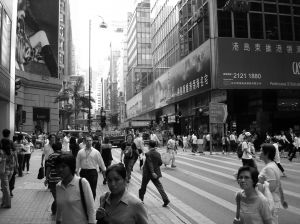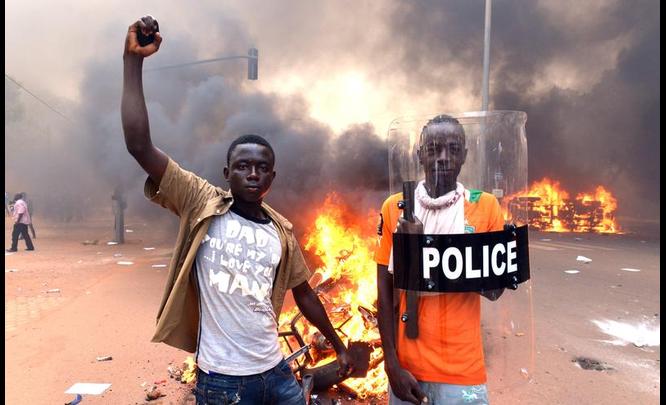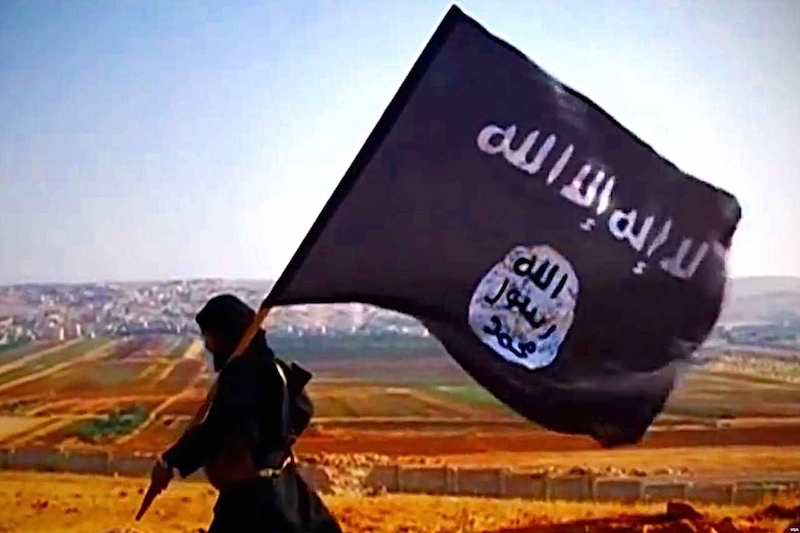 Some of the biggest protests in Hong Kong’s history have taken place this week in opposition to a move by the Chinese government to restrict open elections in the territory. University students boycotted classes for a week and demonstrations throughout the region have gathered momentum. On the first day of the protests over 13,000 students and 400 faculty members staged a sit-in at the Chinese University of Hong Kong campus in Sha Tin. The protests have been organized by the Hong Kong Federation of Students and Scholarism who are part of a wider movement led by the pro-democracy group Occupy Central. Another final demonstration is set to take place in the territory’s central business district.
Some of the biggest protests in Hong Kong’s history have taken place this week in opposition to a move by the Chinese government to restrict open elections in the territory. University students boycotted classes for a week and demonstrations throughout the region have gathered momentum. On the first day of the protests over 13,000 students and 400 faculty members staged a sit-in at the Chinese University of Hong Kong campus in Sha Tin. The protests have been organized by the Hong Kong Federation of Students and Scholarism who are part of a wider movement led by the pro-democracy group Occupy Central. Another final demonstration is set to take place in the territory’s central business district.
The student-led opposition began after Beijing announced that there would be no open nominations in the 2017 Hong Kong chief executive leadership election. Voters would have to choose between candidates who have been prenominated and screened by a government-appointed committee. Chinese authorities have argued that a Western style, open democracy in Hong Kong could produce “chaos.” Meanwhile, opposition groups in Hong Kong claim these policies violate the international agreement signed between Britain and China in 1984.
That agreement, known as the Joint Declaration, ended Britain’s 150-year long colonial rule over Hong Kong and relinquished control of the territory to China in 1997. The premise of the power transfer was based on the concept of “one country, two systems,” which meant that Hong Kong would come under Chinese Communist authority but would retain its capitalist economy and partial democratic political system for the next 50 years. Additionally, after pro-democracy demonstrators were killed during Beijing’s Tiananmen Square protests in 1989, there were further calls for democratic safeguards in Hong Kong from the international community. As a result in 1990 Hong Kong was promised a high degree of post-handover autonomy when Beijing formally ratified the region’s constitution known as Basic Law. Many of the current student protestors in Hong Kong have cited the Basic Law, arguing they are being denied the political freedom it promised.
In addition to violating international law, Beijing’s refusal to reform electoral policies could lead to changes in international emigration. A recent survey conducted by the Chinese University of Hong Kong showed that more than one fifth of Hong Kong residents interviewed would consider emigrating. Participants in the survey cited concern about the political future of the region as their main reason for potentially leaving. The last period of major emigration from Hong Kong took place just before the territory was returned to Chinese rule in 1997.
There is some hope for the student protestors in Hong Kong. Similar peaceful demonstrations took place in 2012 after the Hong Kong government announced the introduction of a “national moral education” scheme, which opponents argued was a type of “brainwashing.” The protests were successful and the educational program was shut down. However, this time protestors are attempting to change policies implemented by the leadership in Beijing and the risk of being ignored is much higher. For example, in a recent statement Chinese President Xi Jinping sought to reassure investors about the stability of Hong Kong by removing any uncertainties about the election. Hong Kong Chief Executive CY Leung was also recently accused of ignoring the protesters concerns by simply walking past demonstrators without taking any notice.
The international community’s response to the pro-democratic protests in Hong Kong will have to be formidable if the students are to be successful. Britain will need to get the attention of the Chinese government by raising serious concern over the violation of Basic Law and the erosion of Hong Kong’s political autonomy. Perhaps the best way the international community can engage with the student protesters is to counter Beijing’s attempts to reduce their significance. If the West is serious about advancing democracy, politicians should pay close attention to what is happening in Hong Kong. Without international pressure China will be able to simply ignore the street protesters and continue to tighten its grip on the territory. Augusta Waldie




